I am trying to convert binary data (an Excel XLS file) into data I can pass as part of a HTTP multi-part request (the code to generate the multi-part requests has been working with string data for some time so I think it is the encoding of the binary data that is the issue not how the request is formed).
For ref the first seven chars of the Excel file (when view in Notepad++) are:
decimal hex
Ð 208 D0
Ï 207 CF
17 11
à 224 E0
¡ 161 A1
± 177 B1
26 1A
I'm setting element.BinaryContent using
binaryContent = System.IO.File.ReadAllBytes(filePath);
If I then use
content.Append(Encoding.UTF8.GetString(element.BinaryContent));
to create the HTTP request content this gives (from the Immediate Window in VS):
In the uploaded file the control chars and the English characters are retained correctly but other characters are converted to incorrect values.
If I'm not explaining this well, the below image shows the data as uploaded on the left and the original on the right.
For ref, how I make the request is using this:
protected static void SetRequestContent(string requestContent, HttpWebRequest request, string contentType)
{
request.ContentType = contentType;
byte[] byteData = UTF8Encoding.UTF8.GetBytes(requestContent);
using (Stream postStream = request.GetRequestStream())
{
postStream.Write(byteData, 0, byteData.Length);
}
}
where requestContent has correctly-formed multi-part content, like this:
--------------------------BNDY
Content-Disposition: form-data; name=password
Txxxxx
--------------------------BNDY
Content-Disposition: form-data; name=username
a@b.com
--------------------------BNDY
Content-Disposition: form-data;name=\"FILE\";filename=\"c:/POSTOutput/Upload.xls\"
��\u0011\u0871\u001a�\0\0\0\0\0\0\0\0\0\0\0\0\0\0\0\0>\0\u0003\0��\t\0\u0006\0\0\0\0\0\0\0\0\0\0\0\u0001\0\0\0\u0001\0\0\0\0\0\0\0\0\u0010\0\0\u0002\0\0\0\u0001\0\0\0����\0\0\0\0\0\0\0\0������������ (etc).
What do I need to do to pass through the data in it original format?

